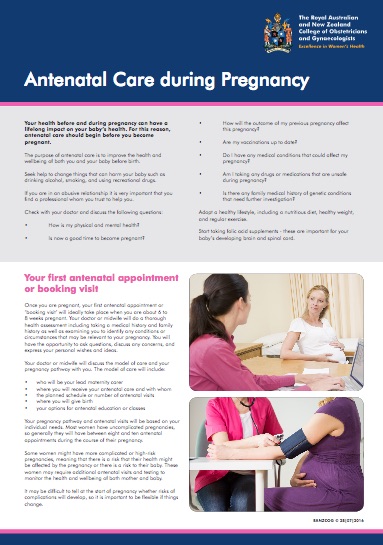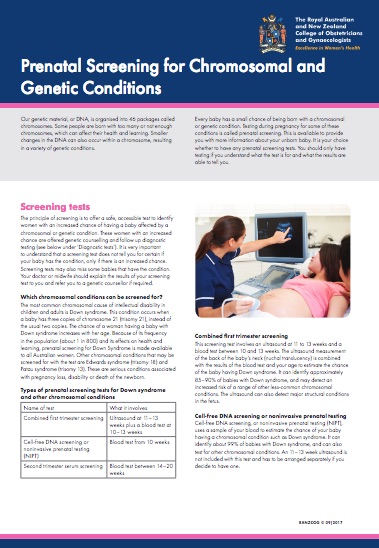The first 3-month period begins before you are even pregnant. It starts with your last menstrual period and includes conception, which on average happens 14 days later. For the first 8 weeks, your baby is known as an embryo, after which it is known as a foetus.
During the first trimester, your baby changes from a single fertilised cell into an embryo that implants itself in your uterine wall. Over the next few weeks, the embryo beings to grow rapidly as the heart and nervous system begin to form and limb buds appear.
By the end of this trimester, your baby is moving freely (although you cannot feel this yet), the circulation and the kidneys are working and the baby is sucking and swallowing. A placenta has developed which ensures the baby receives oxygen, blood supply and nutrients to grow and survive. The baby is attached to the placenta by the umbilical cord.
What's happening to mum?
You may not look pregnant yet – but chances are you're feeling it. In the first few weeks following conception, your hormone levels change significantly as your uterus begins to support the growth of the placenta and the foetus. You may start to experience pregnancy symptoms, such as overwhelming tiredness, morning sickness, breast tenderness, a metallic taste and frequent urination.
As well as coping with the physical changes, the first trimester is a time to come to terms with the reality of being pregnant and to start to prepare mentally for the changes it will bring.
First trimester to-do's
1. Choose your lead maternity carer (LMC)
As soon as your pregnancy is confirmed you need to choose a lead maternity carer or LMC. Your LMC is the person who will help to guide you through your pregnancy, the birth of your child and the first 4–6 weeks of parenthood.
Most LMCs are registered midwives, but they can also be family doctors who provide maternity care or obstetricians (doctors who specialise in pregnancy and childbirth).
- Mum2Be helpline. Phone 0800 MUM 2 BE (0800 686 223) to get lead maternity carers in your area.
- Find a midwife(external link) This website lists contact details for qualified midwives who are members of the NZ College of Midwives.
2. Health tests and screening
When you first see your family doctor, midwife or specialist doctor during pregnancy, you will be offered a blood test. This blood test is free and from one blood sample the following are checked:
- your blood group and rhesus factor
- if there are any antibodies that may be harmful to your baby
- your haemoglobin (the amount of iron in your blood)
- if you are immune to rubella
- if you are a hepatitis B carrier
- if you have syphilis
- if you have HIV
- if you have diabetes or are at risk of developing diabetes.
An optional test is antenatal screening for Down syndrome and other conditions. Read more about antenatal blood tests.
3. Be aware of red flag symptoms
Any of these symptoms could be a sign that something is wrong with your pregnancy. Don't wait for your regular prenatal visit to talk about any of these. Call your doctor or LMC right away if you experience:
- severe abdominal pain or cramps
- severe nausea or vomiting
- bleeding
- severe dizziness
- pain or burning during urination.
4. Learn about labour, birth and looking after a baby
Many women, especially those expecting their first baby, go to classes to learn more about pregnancy, giving birth and parenting. These classes also provide an opportunity to meet other pregnant women – many groups go on to have regular catch-ups after their babies are born.
Talk to your LMC about the classes that are available in your area. Most district health boards(external link) provide a limited number of free classes. There are also privately run classes; you will have to pay for these.
5. Find out about parental leave
You can get up to 10 days unpaid special leave while you're pregnant. This is for medical appointments, antenatal classes etc and doesn't have to be taken as a full day's leave. Find out what paid and unpaid parental leave you're entitled to and how to apply for it at types of parental leave(external link).
Staying healthy in the first trimester
The first trimester is vital for the development of your baby. Your baby will develop all of its organs by the end of the third month. To stay healthy and support this growth read about:









